Sign up to our newsletter
Receive news on the Alliance, upcoming events, and members activities in Sustainable Fashion


The UNDP works in about 170 countries and territories, helping to achieve the eradication of poverty, and the reduction of inequalities and exclusion. We help countries to develop policies, leadership skills, partnering abilities, institutional capabilities and build resilience in order to sustain development results.
Our work around the world is anchored in diverse and effective partnerships, which are vital to our two critical roles at country level;
To respond to challenges, and better focus our resources and expertise to deliver on the 2030 Agenda, UNDP has identified a set of approaches that we call our Signature Solutions. These are integrated responses to development, to make real impact: Keeping people out of poverty; governance for peaceful, just, and inclusive societies; crisis prevention and increased resilience; environment: nature-based solutions for development; clean, affordable energy; women’s empowerment and gender equality. Each Solution includes a mix of policy advice, technical assistance, finance, and programmes. Each solution has the potential to unlock the path to sustainable development. But no one solution will succeed on its own. We need all of them to achieve the SDGs.
UNDP’s work related to sustainable fashion is in the context of eradicating poverty, accelerating structural transformations and building resilience to shocks and crises. Our goal is to strengthen capacities and provide an enabling environment for access to opportunities, focusing on the most vulnerable and excluded population groups – in ways that are sustainable from economic, social and environmental standpoints. To achieve this goal, we work with countries to build their capacity to integrate environmental considerations into development plans and strategies, to manage and sustainably use natural resources; ensure that natural wealth is used to promote economic recovery and livelihoods, and effectively target policies to reduce poverty and provide social protection for those in need.
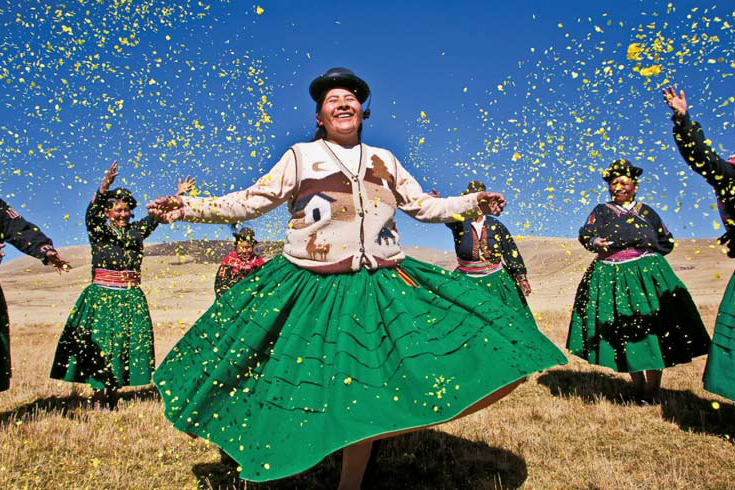
UNDP provides technical assistance to countries to integrate climate change and environmental concerns into national and sectoral plans and strategies; secure resources; and implement programmes that advance inclusive, sustainable development, and strengthen livelihoods. This includes in partnership with environmental vertical funds — principal funds are those managed by the Global Environment Facility (GEF), as well as the Adaptation Fund (AF) and the Green Climate Fund (GCF). UNDP has assisted over 150 countries to access more than $2 billion from these vertical funds since 2010. Learn more.
Greater engagement with the private sector is critical to bridge the adaptation finance gap and to achieve the SDGs. UNDP’s initiatives employ a range of financial and non-financial instruments to facilitate enhanced private investment. UNDP supports climate change adaptation and risk management measures to increase climate resilience and lessen the negative impacts of climate change on existing business operations that can affect long-term viability. We also help address the sustainability challenges of highly-traded commodities, by working with governments in creating national environments where sustainable commodity sectors can grow.
In Mongolia, for instance, we have combined development and environmental finance to identify solutions with government across the value chain for sustainably sourced livestock products (e.g. wool, cashmere and leather). Specific activities include support to herders and ministries on climate-informed management of natural resources, technological approaches for traceability of sustainably sourced livestock products, exploring impact investment to support small and medium sized enterprises along the value chain, and working with the private sector through platforms for agreeing on marketable criteria for sustainable cashmere. Watch for more about climate change in Mongolia and how it is impacting herder livelihoods.
To reduce emissions from deforestation and forest degradation, UNDP assists countries to enact and implement policies and measures for REDD+, putting special emphasis on land, policy and governance reforms, on green commodities, as well as on the full and effective engagement of indigenous peoples and forest communities. UNDP manages a $400 million portfolio of national REDD+ projects, working through a diverse network of institutions and partners, including: with FAO and UN Environment, the UN-REDD Programme in 64 countries; serving as delivery partner for the World Bank’s Forest Carbon Partnership Facility in 7 countries; supporting bilateral investment programmes for REDD+ in 5 countries; managing the Community-Based REDD+ initiative in 6 countries; and hosting the Secretariat of the Central African Forest Initiative (a financial platform with five donors) in 6 forest countries. UNDP also supports pioneer countries with leveraging REDD+ investments and finance — including through the Green Climate Fund (GCF).
In this context, we are exploring opportunities to promote and ensure sustainable forest management and transparency, to reduce deforestation in the textile fiber supply chain.
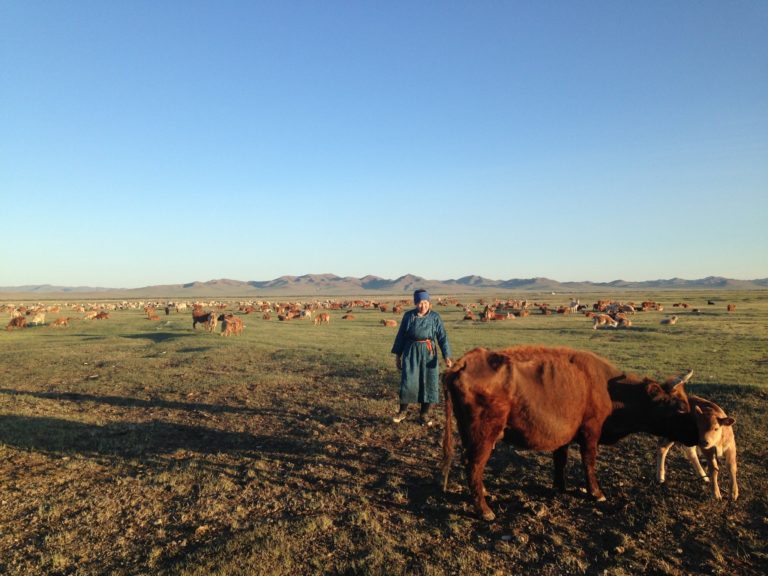
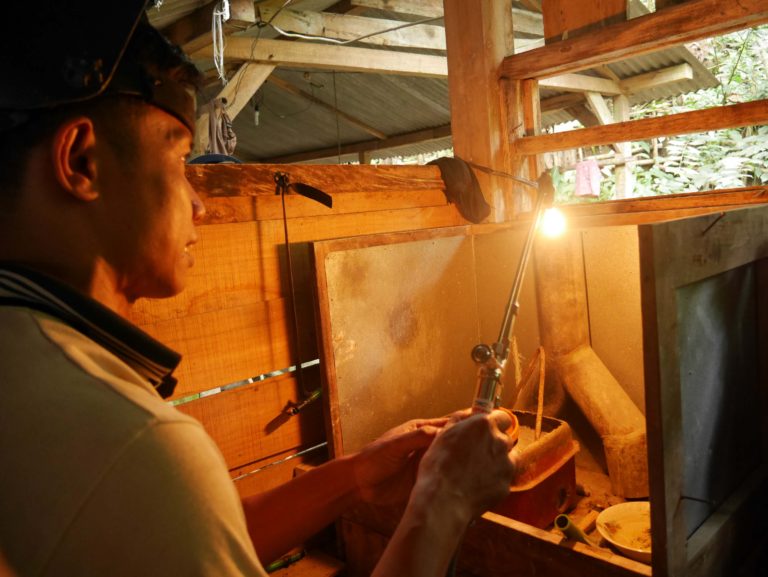
Related to jewelry, UNDP is supporting safe practices to protect ecosystems and human health. Mercury is harmful, but commonly used to separate gold from other materials in artisanal scale gold mining (ASGM). The GEF GOLD Program seeks to reduce the use of mercury in the ASGM sector in the participating countries through facilitating the access to finance to artisanal miners and mining communities for the introduction of low and non-mercury technologies and techniques and through the development of sustainable ASGM gold supply chains. Under the GEF-GOLD program, led by UN Environment, UNDP has child projects in Indonesia, Peru, Colombia and Kenya. Learn more about the use of mercury in artisanal gold and the GEF GOLD Program.
UNDP empowers communities by promoting their rights, enhancing their environmental management systems, advising on finance mechanisms that will support local investments and innovations for sustainability, learning, and strengthening indigenous and community voice in national and international policy processes. This work builds on more than 40 years of experience in policy and practices. The Small Grants Programme (SGP) is a corporate programme of the Global Environment Facility implemented by UNDP since 1992. SGP provides financial and technical support to projects that conserve and restore the environment while enhancing people’s well-being and livelihoods, SGP demonstrates that community action can maintain the fine balance between human needs and environmental imperatives. SGP grant making in 119 countries promotes community-based innovation with special consideration for indigenous peoples, women, and youth. SGP delivers strategic initiatives with key partner-donors: The Community-Based Adaptation programme; the Community Development and Knowledge Management for the Satoyama Initiative; the NGOs Environmental Governance project; and the Global Indigenous Peoples’ and Community Conserved Areas Support Initiative.
Through SGP, UNDP has supported the production of natural fibers with improved management of water, soil, and pastures that enables sustainable lifestyles and improved livelihoods. For instance, in Peru, small grants have helped artisans and herders to protect bio-cultural heritage while improving production of alpaca wool. Learn more about UNDP SGP work supporting communities in the Andes: https://undp.shorthandstories.com/gef-sgp-diamonds-of-the-andes/ and https://stories.undp.org/prosper-under-the-sun
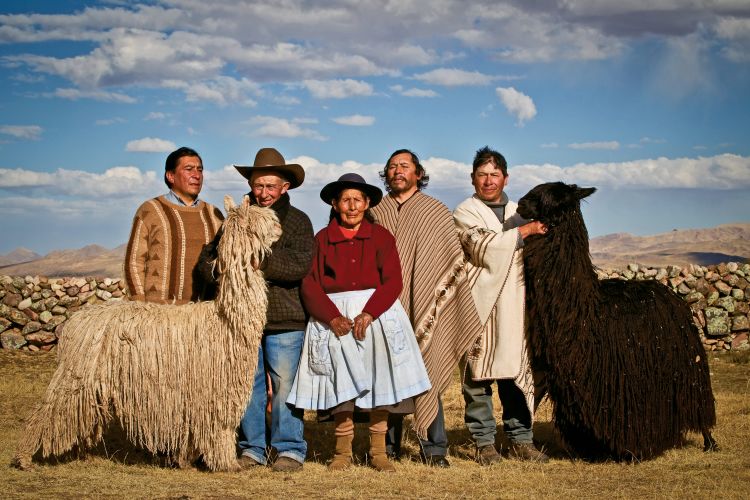
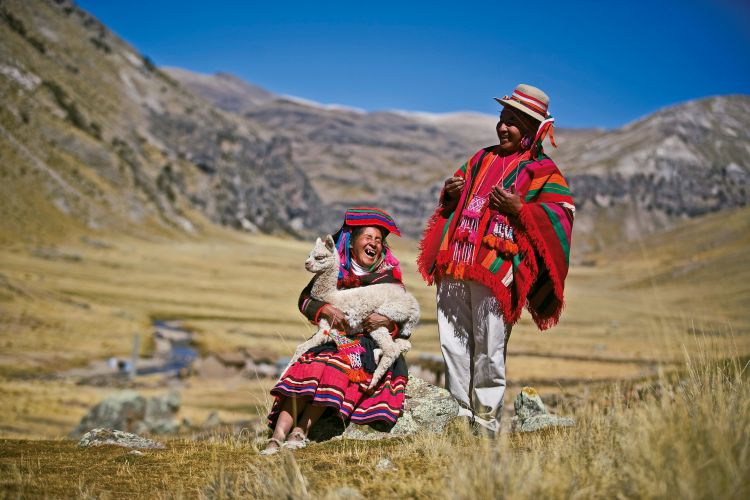
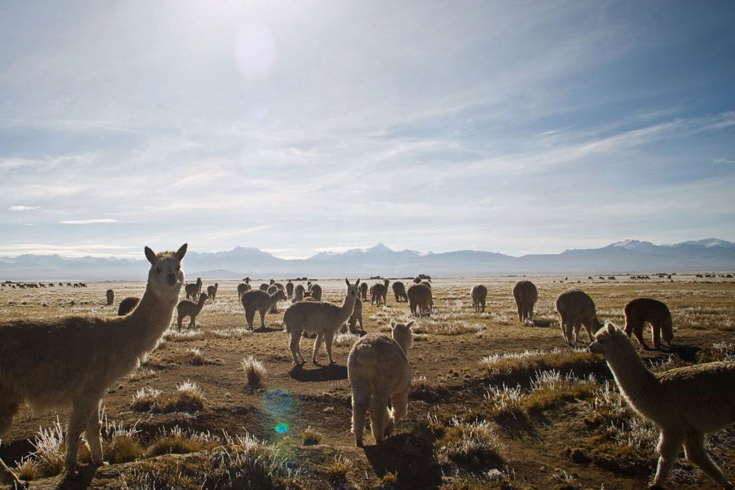
Receive news on the Alliance, upcoming events, and members activities in Sustainable Fashion
